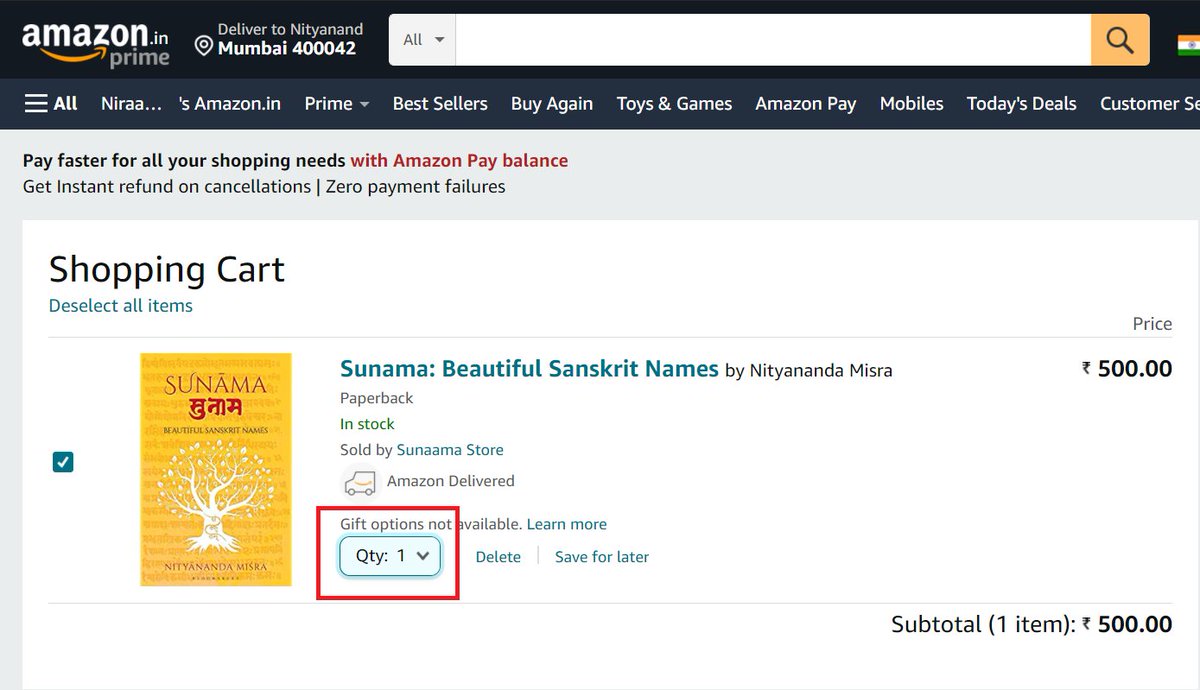
Announcement: How to get signed copies of my books from Amazon India
Following repeated requests from readers for signed copies of my books, I have streamlined the process. Now, signed copies of my book can be had from Amazon India. Here is how to get your signed copy.
1/n
Following repeated requests from readers for signed copies of my books, I have streamlined the process. Now, signed copies of my book can be had from Amazon India. Here is how to get your signed copy.
1/n
1) Go the book page on Amazon India
2) Click on the link “X New from ₹ YYY.ZZ” (just under the best price)
3) Browse to the seller “Sunaama Store” (note the exact spelling)
4) Click on “Add to Cart” (first image)
5) Edit the quantity using the Qty drop-down (second image)
2/n

2) Click on the link “X New from ₹ YYY.ZZ” (just under the best price)
3) Browse to the seller “Sunaama Store” (note the exact spelling)
4) Click on “Add to Cart” (first image)
5) Edit the quantity using the Qty drop-down (second image)
2/n


Do this to get signed copies of all my books—Mahāvīrī, OM Mala (Hindi and English), Kumbha (Hindi and English), Sunāma. After you have added the books to the cart, you can check out the items and pay. The signed copies will be shipped within a couple of days
3/n
3/n
Note—
1) No price discounts, slightly higher price covers for shipping + stationary.
2) I will sign the copies in Sanskrit. DM me for any custom messages/preferred language.
3) A small number of copies are available. If I am out of copies, I will restock in a few days.
n/n
1) No price discounts, slightly higher price covers for shipping + stationary.
2) I will sign the copies in Sanskrit. DM me for any custom messages/preferred language.
3) A small number of copies are available. If I am out of copies, I will restock in a few days.
n/n
• • •
Missing some Tweet in this thread? You can try to
force a refresh


